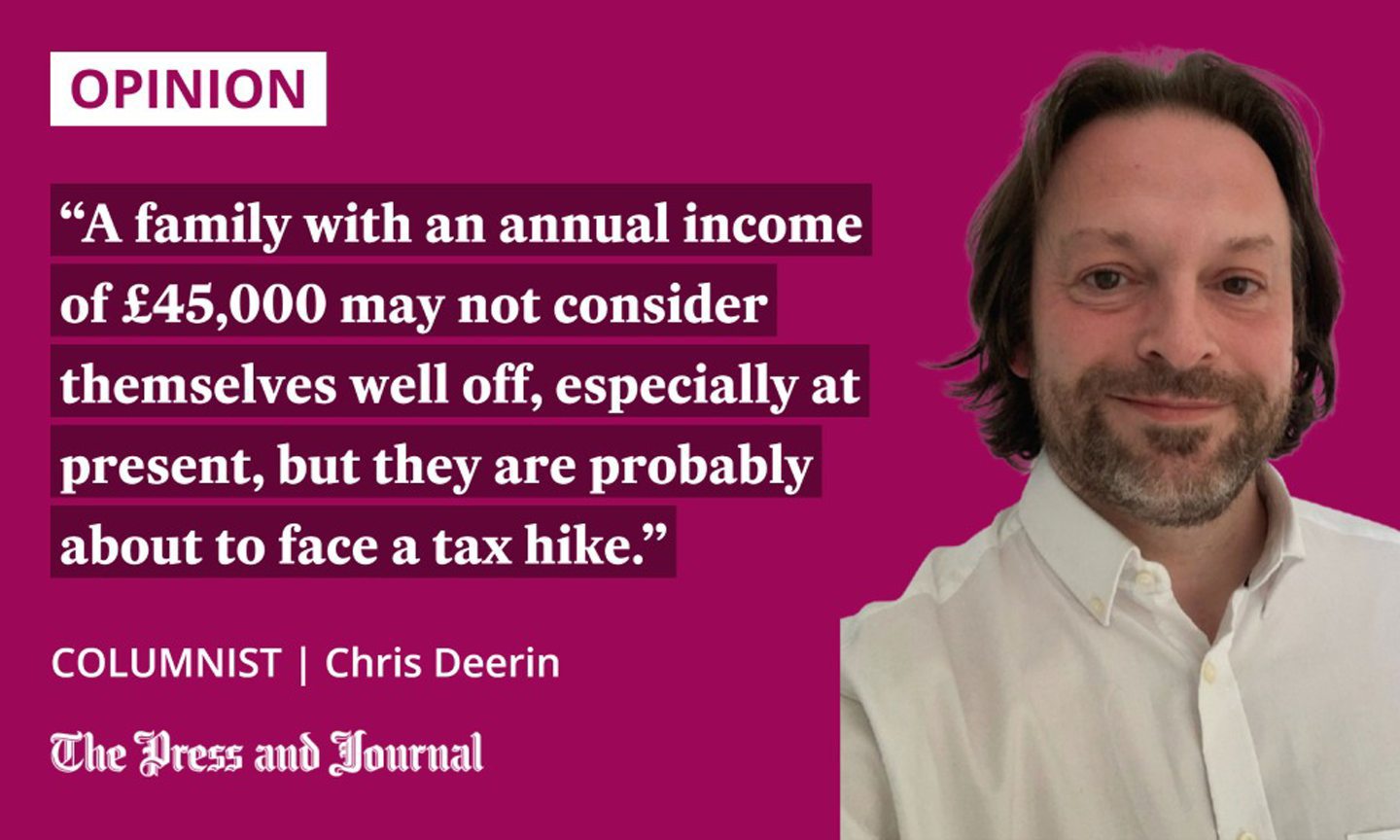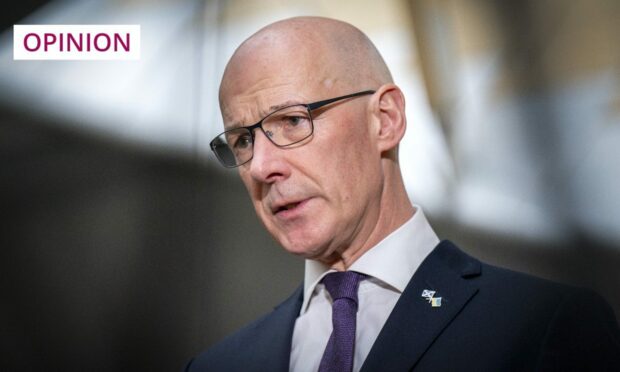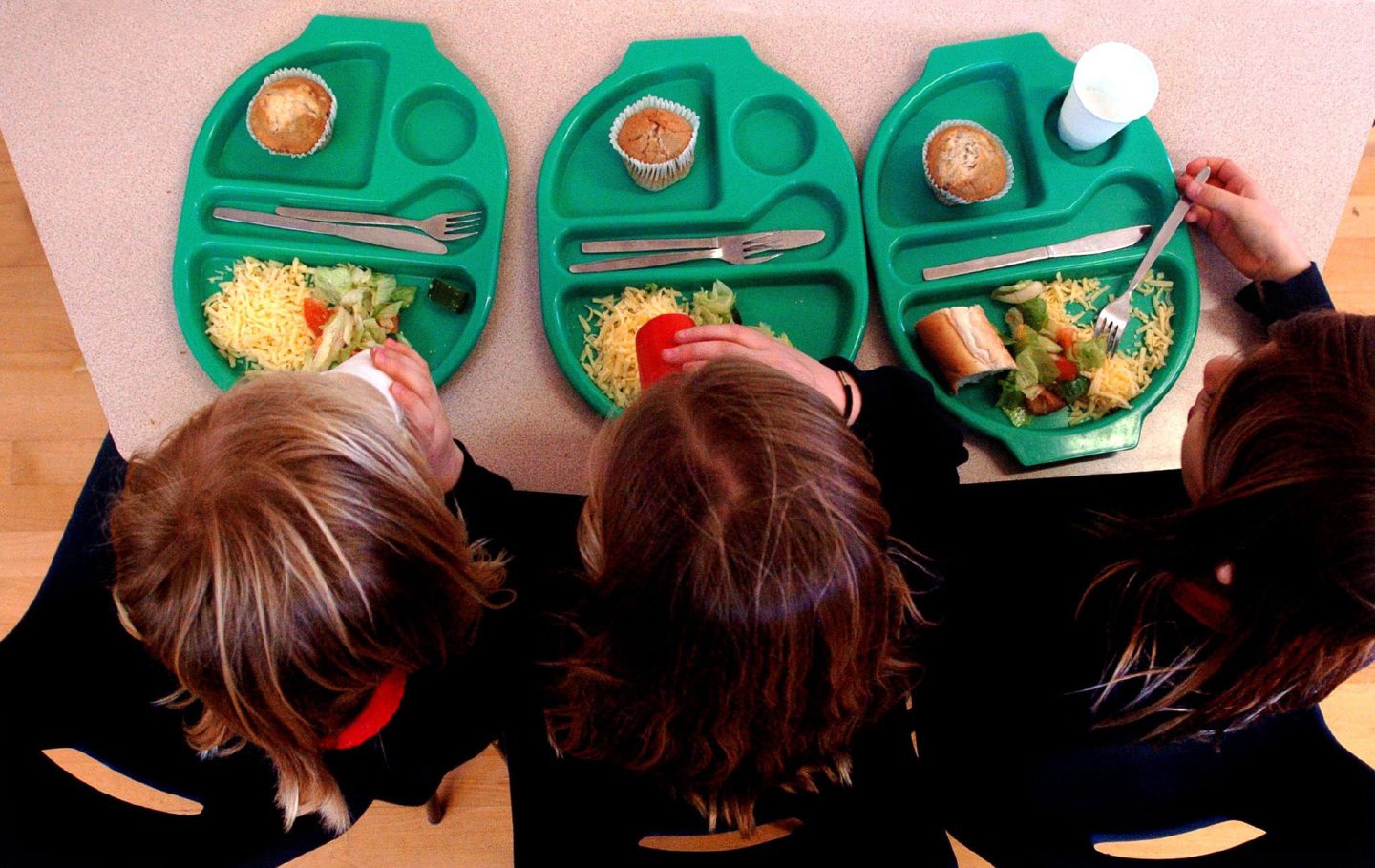John Swinney says his budget will begin reforms that will make Scotland’s future brighter, writes Chris Deerin, but is it all just talk?
There’s nothing very stylish about the Deerin family as we shiver around our gappy, leaky old home this winter.
Big Victorian rooms and high ceilings that can be such a pleasure in more clement seasons are pure, icy torture.
We are bundled in layers of jumpers over thermal underwear, crowned with woolly hats with unfeasibly large bobbles. We squabble for possession of two heated throws, purchased to stave off the worst of the cold. Furry pets are redeployed as hot water bottles. Bedtimes have crept forward.
For a couple of hours a day, the central heating is grudgingly turned on, but, like many, we are too nervous about the cost to let it run for long enough to make much difference to the frigid air.
 Having savagely cut our spending, we’re probably just about doing OK. But, still, as inflation continues to eat away at life’s affordability, the last thing we need is yet another government raid on our dwindling finances. That, though, is what John Swinney seems to be planning in his budget this Thursday.
Having savagely cut our spending, we’re probably just about doing OK. But, still, as inflation continues to eat away at life’s affordability, the last thing we need is yet another government raid on our dwindling finances. That, though, is what John Swinney seems to be planning in his budget this Thursday.
I don’t envy Swinney, standing in for Kate Forbes, the flintier finance secretary, who is on maternity leave. His imposing task is to limit the inevitable cuts to public services, find money for pay rises as state workers threaten a series of damaging strikes, and support the poorest.
Eradicating child poverty, transforming the economy to deliver net zero and creating sustainable public services will be the key aims of the Scottish Budget 2023-24.
Deputy First Minister @JohnSwinney delivers the Budget on Thursday 15 December.
More ➡️ https://t.co/1XyPYnNHqi pic.twitter.com/JG5Oal1YSz
— Scottish Government Finance and Economy (@scotgoveconomy) December 11, 2022
Chancellor Jeremy Hunt has already announced eye-watering tax rises. Swinney, who used to have the reputation of a tartan Tory, but these days appears to be the most bleeding of hearts, will undoubtedly want to be seen to go further.
Swinney will have to come for the middle
The Scottish Government has prided itself for some years now on a “progressive” income tax system, which takes a little more from the wealthiest than elsewhere in the UK – not enough to make a real difference or to scare the rich away, but just enough to “prove” the SNP cares that bit harder. However, hitting the rich for more tax now won’t even touch the sides of the current crisis – there are fewer than 15,000 top-rate taxpayers in Scotland.
As a result, Swinney will have to come for the middle, which is where the real cash is. It has already been floated that the 41% rate currently paid by around 500,000 Scots on incomes between £43,663 and £150,000 will go up. There are also suggestions that thresholds will be frozen, so more taxpayers are dragged into higher rates.
A family with an annual income of £45,000 may not consider themselves well off, especially at present, but they are probably about to face a tax hike.
Professor Mairi Spowage, director of the Fraser of Allander Institute, pointed out this week that additional funding from the British government’s autumn statement, worth around £1 billion, will largely offset inflationary budget pressures in Scotland. But, the devolved administration has pledged to protect public services, its measures on child poverty, and the move towards net zero. In these areas, and others, the cost even of standing still is soaring, and new spending pressures are coming online all the time.
Scottish tax system needs reform
We can expect to hear plenty from Swinney and his fellow SNP ministers about the limitations imposed by membership of the UK – he was at it already yesterday, saying that “given the fiscal constraints of devolution, it is not possible to go as far as we would like”.
They will argue that, outside the union, Scotland would be free to take radical decisions about how to structure its economy in a fairer way. This is hokum: were Scotland independent just now, it would be facing a fiscal tsunami that would dwarf the UK’s difficulties, and the international markets would be imposing terrible strictures.
Interestingly, Swinney has talked of ‘a fundamental change in the way we manage public spending’
There is little doubt, however, that the Scottish tax system – not to mention its British parent – needs reform.
Interestingly, Swinney has talked of “a fundamental change in the way we manage public spending”, and says his budget will begin reforms “that will place our finances and public services on a more sustainable and resilient footing for the future”.
Will the SNP bring in change?
Earlier this year, my think tank, Reform Scotland, published a report, Taxing Times: Why Scotland Needs New, More and Better Taxes, looking at just how this might be done. We pointed out that tax revenues will need to increase, due to an ageing population, to meet the demands of climate change, and simply to maintain current service provision. The traditional tweaks to income tax and national insurance will not be sufficient or fair.
Scotland will, instead, need to consider shifting the balance of taxation from earnings to wider income and wealth. Given the dangers of tax flight to south of the border or further afield, these taxes should mainly focus on immobile wealth, such as land, reforming property tax by charging owners rather than occupants, and aligning rates more closely to property and land values. The Holyrood government should also allow councils freedom to impose levies in appropriate local areas, such as tourism and forestry.
This crisis may be an opportunity for such a process of change to begin. We’ll find out on Thursday if there is more to the SNP than talk.
Chris Deerin is a leading journalist and commentator who heads independent, non-party think tank, Reform Scotland


